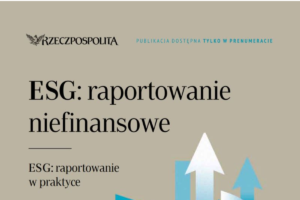Business Coaching – Support for Employees Worth Reaching Out to More Often
Although coaching is a common and widely used method in business, its beneficial effects are still not fully appreciated, especially in supporting mid-level and senior leaders or in exceptional situations where precise support is needed here and now. Why do we at Synergist believe it’s worth it?
Why is it worth using more often?
Our experiences with coaching or mentoring leaders clearly show that they often feel lonely in their roles, not always having someone to bounce ideas off of and talk about challenges, especially feeling the irrational pressure that, as leaders, they should already know everything and deal with all the challenges themselves. There is still a prevailing belief among some that seeking support and help is a sign of weakness and an unnecessary luxury. In contrast, coaching is a modern, research-based method drawing from various psychological currents, which can facilitate and accelerate the process of overcoming difficult times or challenges.
It’s an extremely tailored process when quick, precise support is needed for the here and now. Sometimes, even one business coaching intervention session can bring enormous benefits.
It’s not worth waiting too long.
We have experiences where clients reach out for coaching support when things are already very tough, and sometimes, there’s even a certain embarrassment or uncertainty attached to it. I often use the metaphor that in the 21st century, it’s like taking pride in having a toothache and not needing to go to the dentist because you’re bravely coping. Anyone who has participated in such professional processes has probably felt the big difference it makes when you’re alone with your thoughts versus when you put your thoughts on paper. Speaking specific fears, thoughts, and beliefs aloud and seeing them reflected in the eyes and ears of another person brings a completely different quality to the analysis. The additional value is that it’s an independent person from outside the organization, looking at what’s happening from a distance.
I strongly believe in the methods I use. I am also a coaching client quite regularly. For several years, at every difficult stage of my life, I have boldly reached out for this kind of support. Of course, I could manage without this support, but I deeply believe it would take longer and cost me more, not to mention achieving the level of work goals that was possible thanks to it.
When is it especially worth reaching out for this form of support?
There are specific situations where this coaching support is particularly needed by leaders, and it’s worth offering them. Certainly, these situations include taking on a leadership role, taking over a new team, and going through major changes, but also special types of challenges and difficulties such as continuous work under high pressure and exposure to stress, relational problems within the team, or a decrease in motivation and engagement, bigger dilemmas etc.
Another situation in which this support is particularly needed is when, for some reason, we deem that a leader needs to work on themselves and change something in their behaviour. Sometimes, such situations arise from working on conflicts within the team or thanks to a 360 assessment. There are situations where a person, despite many talents and great potential, needs to work on certain attitudes or skills in the area of “Human Skills”. What can be a trap is the assumption that mere awareness and willingness to change are enough. If someone has functioned in particular communication, reaction, and behavioural patterns for years, changing their habits will only be easy with appropriate support and conscious regular self-work. An additional difficulty is that despite access to knowledge at the highest level, leaders are usually very busy people who bear great responsibility and, therefore, quickly revert to old habits due to haste.
What do sample elements of the coaching process look like?
- setting goals and refining them.
- developing new options and ways of implementation by expanding creativity and knowledge.
- defining an action plan.
- monitoring progress.
- building motivation and supportive beliefs.
- assessing risk and developing coping strategies.
Confidentiality is extremely important in this profession. The coach keeps all information and data obtained from the Client confidential and cannot use or pass it on in any form. Complete professional secrecy applies here unless otherwise agreed by the parties. In the case of business coaching, if the sponsor is a company, the form of reporting the process’s results is jointly established by the Client and the coach.
Some examples of client reference quotes:
“I have used business coaching as support for the organization, both as a client and as a person directing coaching for other employees in need of support in various topics. I assess this type of coaching work as highly effective and providing quick results in terms of changing attitudes or improving soft and leadership skills. Coaching with Martyna is one of the best tools for when we need quick, employee-tailored support.”
Head of People & Culture – Justyna Grzywarczyk
“Coaching is an invaluable tool for overcoming complex leadership and business challenges. Coaching sessions, as needed, increased my effectiveness and efficiency as a leader and brought positive experiences in guiding my team through similar processes. I recommend coaching as a powerful support tool for leaders who want to increase their impact on the organization.”
Director, Software Engineering – Maciej Oczko
“Martyna supported my executive development process in a very effective manner. Our sessions helped me to proceed with company transformation in a very dynamic business environment (2020 and 2021). Despite many obstacles, her results-oriented approach helped me create a team of very strong professionals. In 2021, we achieved the best company revenue in 110 years of company history.”
Aleksander Sawiuk – Site Director.



